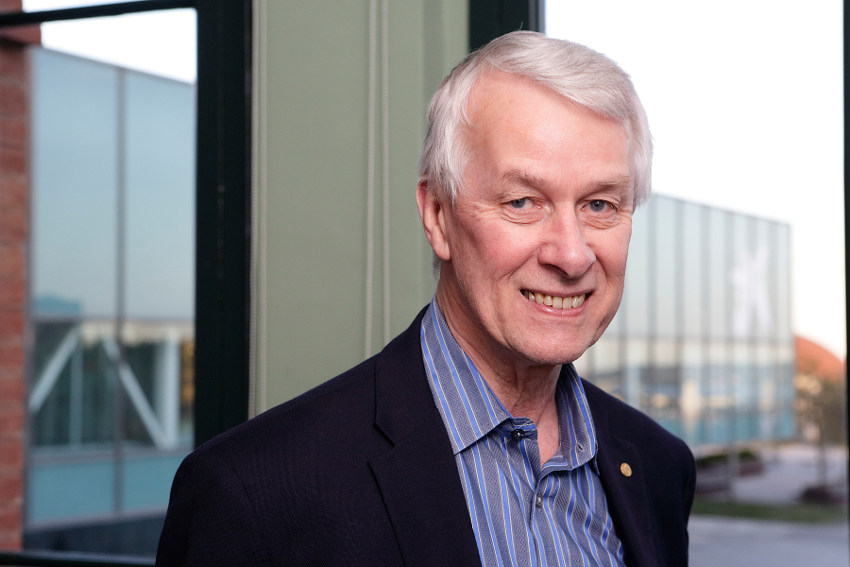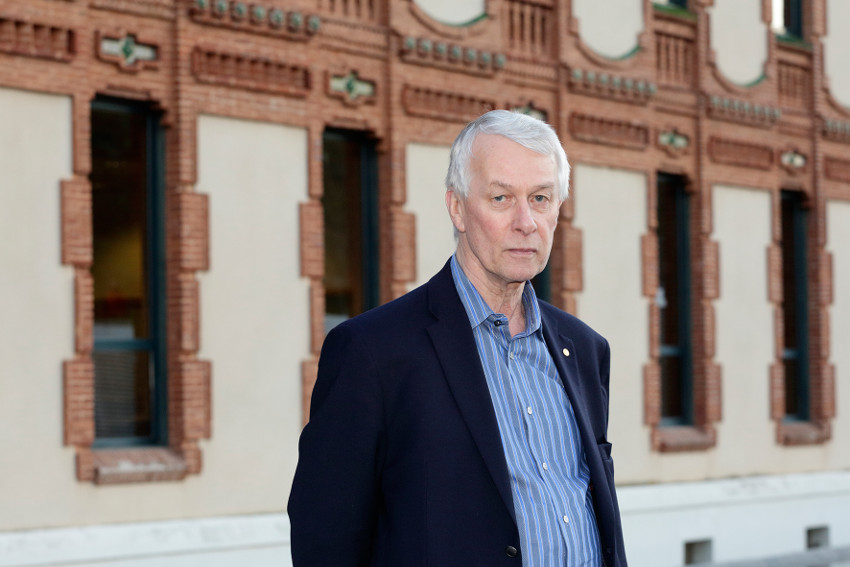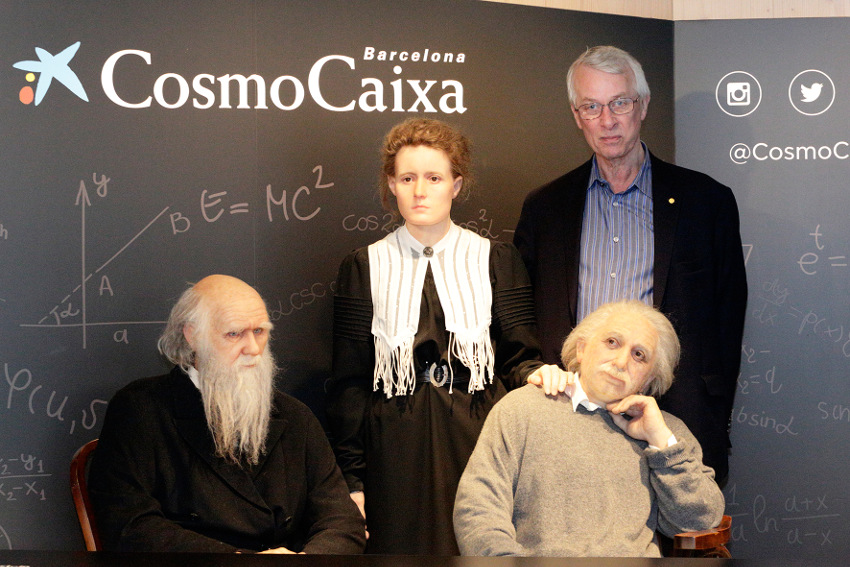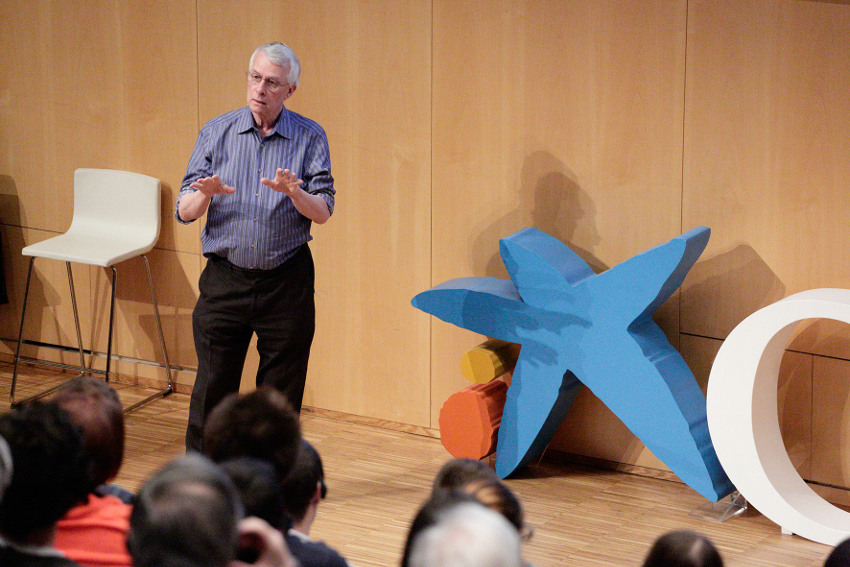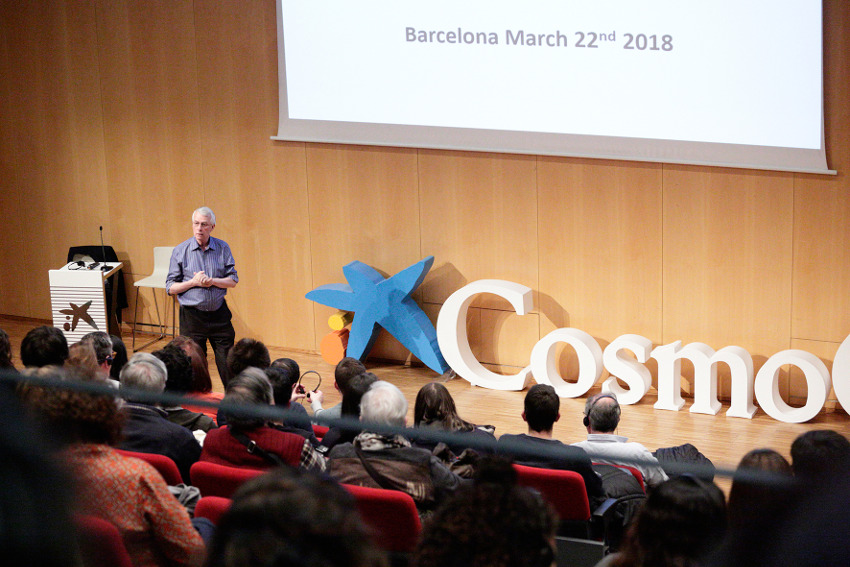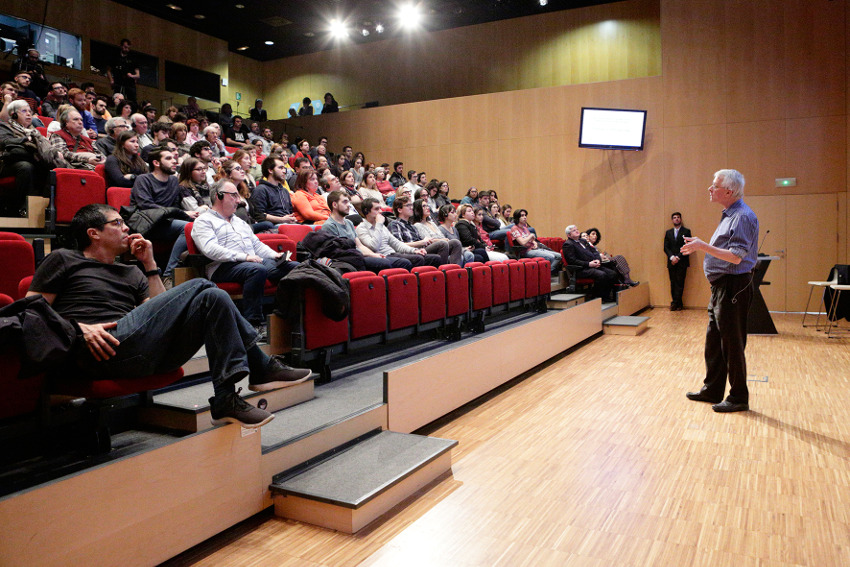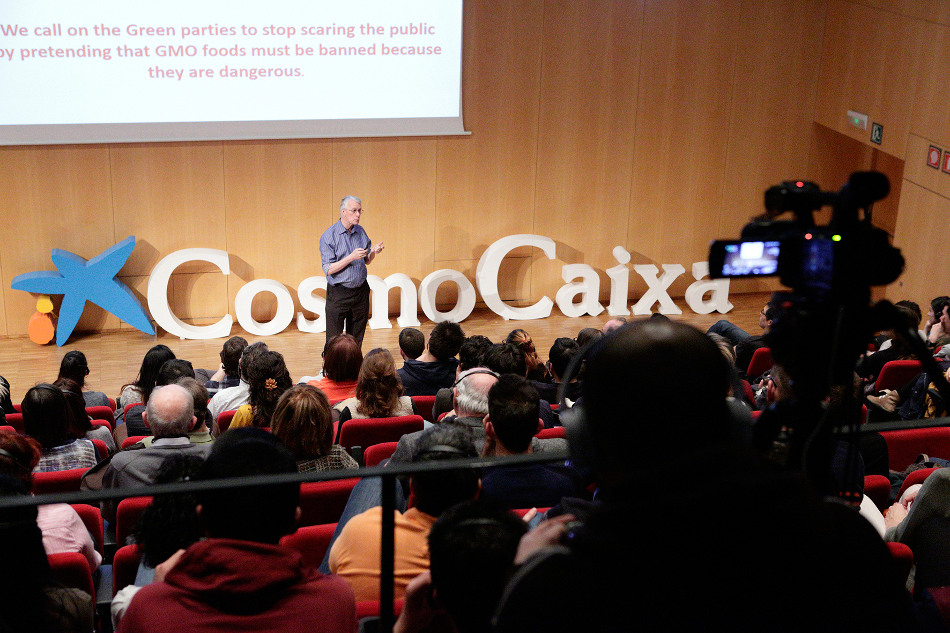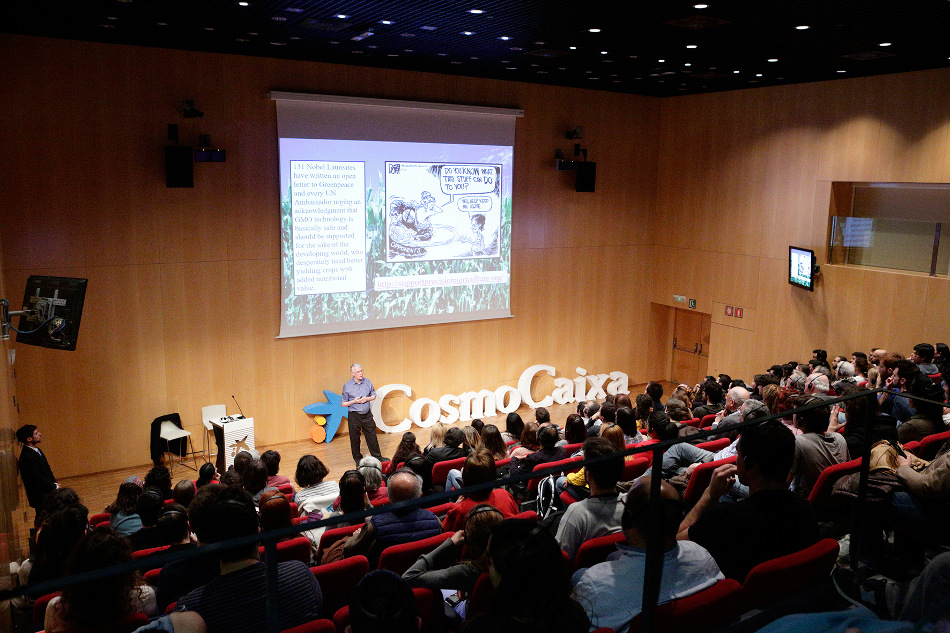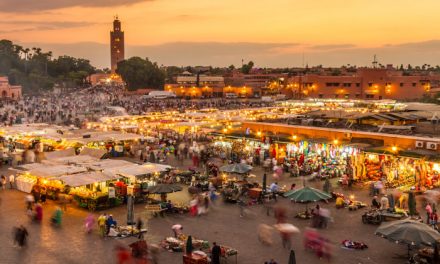“Some people are alarmed about the dangers of these foods, but let’s be clear that in many countries children can stay alive thanks to them”
Richard Roberts, Nobel prize in Medicine in 1993 and honorary academician of the Royal European Academy of Doctors-Barcelona 1914 (RAED), defended the safety of transgenic crops provided that their production is carried out under the safety parameters that guarantee the health institutions international organizations and assured that, today, it represent the best mechanism to fight against hunger in the third world. The Nobel made these reflections during the debate “¿Son seguros los cultivos transgénicos?” (Are GM crops safe?), held on March 22 in CosmoCaixa of the Obra Social de La Caixa under the auspices of RAED.
“These crops are totally safe -Roberts said-, and all the studies and the main scientific associations point out that there is no reason to worry, because the method is safer, perhaps, than the traditional ones to improve crops. This technique has been refined and, if we compare it with the traditional one, it’s much faster and more precise”.
The academician, awarded with the Nobel for his discoveries in the structure of DNA, lamented the rejection that these crops produce in Europe and that even authorized voices alert about their supposed dangers to health and the environment. “There are prestigious people and even institutions that are alarming about the dangers of these foods, but let’s also be clear that in Africa, Asia or Latin America, children can stay alive thanks to them -he said-. In the first world we don’t need transgenics, but in poor countries yes, sitting in the developed world and telling the developing world that we can’t feed them is immoral”.
“Research and new technologies have managed to improve crop production and significantly increase the nutritional value of the same crops. There is great controversy regarding the safety of biotech crops, but they have been consuming for years without discernible adverse consequences. The benefits are clear, and could be used to feed undernourished populations, but the question is: how can it be justified to try to stop this type of technology and not offer solutions against malnutrition?”, concluded the Nobel.
Roberts explained that the technique to make these crops is harmless to the environment. “It consists of taking the desired gene, placing it in the DNA, transferring it to the plant and, in this way, avoiding the transfer of additional genes”.
- Conferencia de Richard Roberts ¿Son seguros los cultivos transgénicos?


